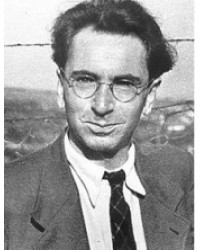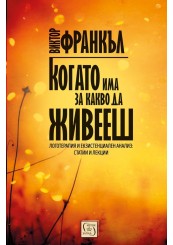Viktor Frankl

Viktor Emil Frankl (1905–1997) was an Austrian neurologist and psychiatrist as well as a Holocaust survivor. Frankl was the founder of logotherapy, which is a form of existential analysis, the "Third Viennese School of Psychotherapy". His best-selling book Man's Search for Meaning (published under a different title in 1959: From Death-Camp to Existentialism, and originally published in 1946 as Trotzdem Ja Zum Leben Sagen: Ein Psychologe erlebt das Konzentrationslager, meaning Nevertheless, Say "Yes" to Life: A Psychologist Experiences the Concentration Camp) chronicles his experiences as a concentration camp inmate, which led him to discover the importance of finding meaning in all forms of existence, even the most brutal ones, and thus, a reason to continue living. Frankl became one of the key figures in existential therapy and a prominent source of inspiration for humanistic psychologists.
Frankl was born in Vienna into a Jewish family of civil servants (Beamtenfamilie). His interest in psychology surfaced early. For the final exam (Matura) in Gymnasium, he wrote a paper on the psychology of philosophical thinking. After graduation from Gymnasium in 1923, he studied medicine at the University of Vienna. In practice he specialized in neurology and psychiatry, concentrating on the topics of depression and suicide. His early development was influenced by his contacts with Sigmund Freud and Alfred Adler, although he would diverge from their teachings.
Liberated after several months in concentration camps, Frankl returned to Vienna, where he developed and lectured about his own approach to psychological healing. Frankl believed that people are primarily driven by a "striving to find meaning in one's life," and that it is this sense of meaning that enables people to overcome painful experiences. Frankl wrote his world-famous book entitled, Trotzdem Ja Zum Leben Sagen: Ein Psychologe Erlebt das Konzentrationslager ("Saying Yes to Life in Spite of Everything: A Psychologist Experiences the Concentration Camp"), known in English by the title Man's Search for Meaning (1959 title: From Death-Camp to Existentialism). In this book, he described the life of an ordinary concentration camp inmate from the objective perspective of a psychiatrist.
After enduring the suffering in these camps, Frankl concluded that even in the most absurd, painful, and dehumanized situation, life has potential meaning and that, therefore, even suffering is meaningful. This conclusion served as a basis for his logotherapy and existential analysis, which Frankl had described before World War II. He said, "What is to give light must endure burning."
Frankl's logotherapy and existential analysis are considered the third Viennese School of Psychotherapy, among the broad category that comprises existentialists. For Irvin Yalom, Frankl, "who has devoted his career to a study of an existential approach to therapy, has apparently concluded that the lack of meaning is the paramount existential stress. To him, existential neurosis is synonymous with a crisis of meaninglessness".
He has coined the term neurogenic neurosis, and illustrated it with the example of Sunday neurosis. It refers to a form of anxiety resulting from an awareness in some people of the emptiness of their lives once the working week is over. Some complaint of a void and a vague discontent. This arises from an existential vacuum, or a feeling of meaninglessness, which is a common phenomenon and is characterized by the subjective state of boredom, apathy, and emptiness. One feels cynical, lacks direction, and questions the point of most of life's activities.
People without a meaning in their life are exposed to aggression, depression and addiction.


